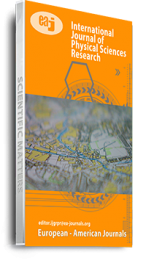This study aims to analyze the transformative impact of the construction of the Arbër Road on the socio-economic development of the Klos Municipality, an area with a rural character in northern Albania, characterized by geographical isolation, high emigration and slow economic development. Using a mixed methodology that includes document analysis, statistical data, and stakeholder interviews, the study reveals notable changes in agriculture, tourism, and microenterprise development. New guesthouses and local businesses have emerged, while returning emigrants are investing in small-scale projects supported by government schemes. Informal markets and cultural events are also revitalizing the local economy. Despite these advances, challenges remain, such as limited spatial planning and weak institutional capacities. The study concludes that Klos is a clear case where road infrastructure, combined with strategic support, can catalyze inclusive regional development through economic diversification, community engagement, and diaspora reintegration.
Keywords: Arber Road, Klos Municipality, Regional Development., Road Infrastructure, agrotourism

